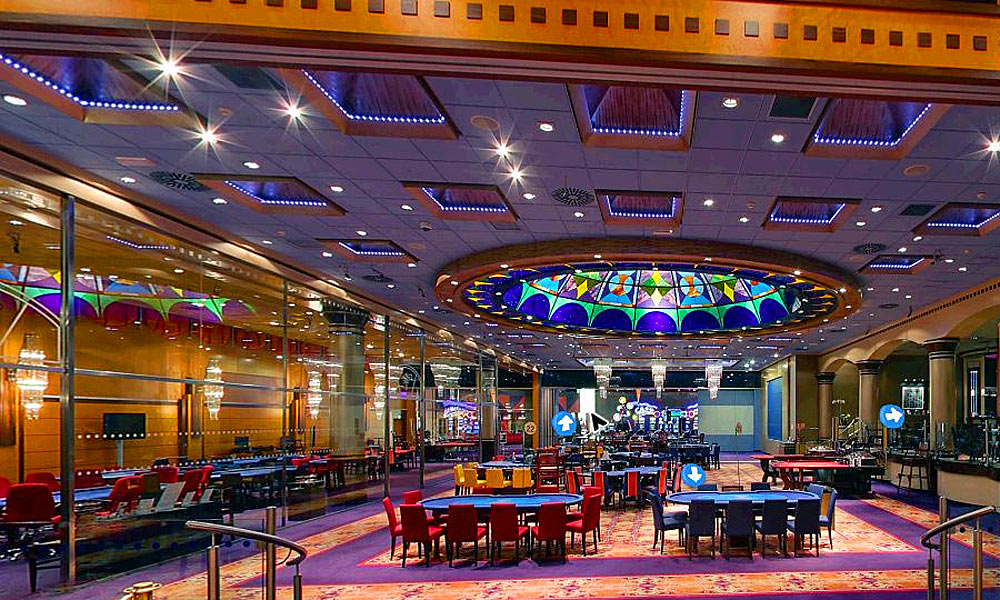
Casino games have long captured the fascination of humans around the globe, becoming an integral part of both entertainment and society. From the glimmering lights of the Vegas Strip to the captivating experience of virtual casinos, these experiences evoke excitement, risk, and sometimes even a sense of remembrance. They are not just just entertainments; they have woven themselves into the fabric of society, influencing everything from film and melodies to clothing and writing.
The charm of casino games goes beyond the wagering aspect, tapping into wider themes of serendipity, possibility, and psychology. As players convene around a card table or rotate the wheel of fortune, they engage in an timeless ritual that echoes with our shared desire for thrill and instability. This fascination has led to the growth of countless references in films, songs, and gaming, showcasing how deeply entrenched these games are in pop culture. Whether it is the intense drama of a traditional caper or the colorful nightlife portrayed in music videos, casino games have established a substantial place that reflects our connection with reward.
Social Importance of Gambling Games
Gambling games have played a key role in social aspects throughout history. Stemming from ancient societies, forms of chance were often linked to ceremonies or events. For example, early iterations of these activities can be linked back to historic China and the Romans, where dice games and betting on results were common pastimes. These games not only served as entertainment but also as means of connecting people, facilitating connections among individuals within societies.
As cultures evolved, so did the complexity and structure of casino games. The creation of official casinos in the 17th century, particularly in the Italian region, marked a major shift in how games were perceived and structured. With designated spaces for gaming, the casino became a social hub where patrons from various backgrounds gathered. This evolution contributed to the validation of the industry, transforming it from a mere pastime into an organized industry that influenced the economy and regulations.
The impact of casino activities on mainstream culture cannot be understated. As they were brought into the limelight in books and movies, games such as poker and 21 became symbols of chance, luck, and strategy. Famous characters and narratives have emerged around these activities, reflecting societal views towards luck, wealth, and vice. This fascination with casino games has infiltrated various forms of media, solidifying their status in the collective consciousness and linking them to broader cultural narratives throughout the ages.
Depiction of Gambling Activities in Entertainment
Casino activities have long been a popular subject in various forms of media, reflecting both the fascination and complexities of the world of gambling. Movies such as Ocean’s Eleven and Casino Royal portray individuals who navigate high-stakes environments, showcasing not only the appeal of the gambling environment but also the methods and decisions that come with playing popular games like Texas Hold’em and 21. These films often dramatize the thrill of winning and the potential consequences of losing, encapsulating the perils involved in betting.
TV programs have also explored the realm of casino games, often integrating them into the narrative as a context for story progression and conflict. Shows like Las Vegas depict the experiences of gambling employees and casino-goers, highlighting the lively, often disorderly energy of the casino floor. Reality shows featuring high-stakes gambling competitions further emphasize the attraction of casino games, drawing viewers into the excitement and strategy involved in each game. Through these portrayals, media not only amuses but also sparks conversations about fortune, skill, and the character of chance.
Gaming have increasingly incorporated casino games into their structure, allowing players to simulate the feeling of betting without financial risk. Games within the domain of digital gaming often include virtual slots, online poker, and other popular casino games, creating an interactive experience that mirrors real-life gameplay. These virtual portrayals make gambling activities accessible to a global audience, appealing to both gamblers and those who enjoy the excitement of simulation. As a consequence, the portrayal of casino games in media continues to shape societal views and importance, highlighting their place in entertainment and culture.
Impact of Gambling Activities on Society
Casino games have a significant effect on society, affecting multiple aspects of culture and social behavior. casinos not on GamStop They often serve as a venue for community engagement, where people come together to enjoy a common activity. Casino trips with friends or visits to casinos become social activities that build connections and create memories. This collective aspect enhances the fun value of casino games, making them a favored choice for festivities and recreational pursuits.
Additionally, gambling activities have been depicted in numerous movies, TV series, and literature, shaping views and opinions towards gaming and gaming. Icons like James Bond competing in baccarat or the intense poker scenes in films have cemented these games in the collective imagination. This representation often glamorizes the lifestyle associated with gambling, attracting new players and influencing trends in both style and behavior. These representations can ignite curiosity and lead to a more profound exploration of the nuances of gaming.
Nonetheless, there are also adverse consequences associated with the widespread appeal of gambling activities. The temptation of quick monetary gain can lead to gambling addiction and economic troubles for some people. Society must grapple with these issues, promoting responsible gaming and education of the risks involved. Balancing the entertainment value of gambling activities with the risks is crucial to ensure that they remain a positive aspect of our societal fabric.
